Suzanne Nossel is a Non-Resident Fellow at the Security and Peace Initiative and founder of the Democracy Arsenal blog. She served as Deputy to the Ambassador for UN Management and Reform at the US Mission to the United Nations from 1999 – 2001 under Ambassador Richard C. Holbrooke. Ms. Nossel graciously allowed UNSG.org to share with our readers her recent post on the UNSG selection from Democracy Arsenal. Rather than excerpt or comment on it, we felt its concise, inclusive and insightful suggestions merited offering it in its entirety. We look forward to your comments and reactions.

The labyrinthine and secretive process of selecting a replacement for UN Secretary General (SYG) Kofi Annan, whose second term ends in December, is now getting underway. This site does a marvelous job of tracking the progress and prognostications. Given the shape the UN’s in, its no exaggeration to say that the choice will have a major impact on the future role and effectiveness of the world body. Here’s what anyone who cares about the UN ought to be looking for:
1. A Strong Manager – Some say the next SYG ought to be more of a politician than a manager, since the key underlings run things day to day. But management skills are always critical for a top job, no matter how much is delegated. The UN risks desuetude if its sprawling bureaucracy lapses into even one more serious scandal. The SYG needs to surround himself with the right people, and his chief lieutenants must believe that the boss is watching, that he knows incompetence, laziness, and dishonesty when he sees it, and that he won’t tolerate it for even a minute. The Admistration is right on this one, though may be focused on management skills to the exclusion of other vital qualities.
2. A Charismatic Leader – The Bush Administration may well prefer a SYG who is not a leader in his own right, assuming that such a person will be easier to control. But the divisions in both the UN’s General Assembly and the UN Security Council mean that only someone with charm, persuasive powers, and forcefulness will be able to make headway. The organization’s tendency toward lowest-common-denominator indecision and passivity is what has made it so ineffectual on Darfur and, to date, Iran. If the SYG doesn’t have the personality to help cut through it, no one will.
3. An Asian – The UN has an informal agreed regional rotation system which dictates that this is Asia’s “turn” to have a SYG. There’s been talk about alternative E. European candidates, and the idea that given the array of qualities on lists like this one, there whould be no limits on finding the right person for the job. But everyone agrees that the two key parties who must acquiesce before white smoke billows from UN HQ are the U.S. and the Chinese. The Chinese will demand an Asian, and they’ll get an Asian. It’s almost certain that this will mean the next SYG is a man, which is why I use the male pronoun in this list.
4. A Visionary of Sorts – While a highly competent functionary can effectively lead an organization like the World Food Programme or UNHCR that has a well-defined mission, leading the UN involves setting a global agenda. The SYG needs to articulate his own views for how to prioritize among the UN’s dizzying array of programs, speaking from conviction when he argues for something. At least rhetorically, Kofi Annan did well on this score, showing leadership in promoting a Responsibility to Protect and the promotion of democracy.
5. Someone who Enjoys the Respect of the Developing World – The UN is dominated by delegations from the developing world who are eternally suspicious that the wealthier countries who fund the UN and dominate the Security Council will shortchange their priorities. They will make life miserable for a SYG they don’t trust, and can and will paralyze the UN in the process. This sets a high bar for candidates from Japan or Korea who are not seen as “of” the developing world.
6. Someone who likes the United States – Boutros-Ghali is an example of a SYG who, on balance, was probably more contemptuous than admiring of the U.S. The feeling was mutual, and Washington ultimately ran him out of office. The SYG works more closely with the U.S. than any other UN Member State, and needs relationships with both Administration officials as well as the (invariably Republican) Members of Congress who obsess over UN funding issues. Finding someone who has been largely uninfluenced by the rising tide of anti-US sentiment in recent years may be tough, but its critical.
7. Someone Unafraid to Take Risks – A risk-averse SYG will do nothing more than ratify the UN’s natural penchant for inaction. The UN needs someone who is willing to push on big governments, who doesn’t take no for an answer, who is willing to propose things to break through impasse, and who doesn’t suffer from a compulsive need to be liked.
8. Someone who likes Media Attention, but Not Too Much – Part of the task of the next SYG is rebuilding the organization’s global stature. This will require being visible and making the UN visible for the good it does. A dour SYG, or one who can’t make himself easily understood by the global media, will set the UN back. Annan’s lilting voice, attractive wife, and affinity for the Manhattan social scene helped give the UN a bit of panache that made the organization seem slightly less depressing than it otherwise would have in its darkest hours. But the UN membership will strike back against a SYG who they think is trying to steal too much limelight for accomplishments they see as their own.
9. Someone Patient but Not Too Patient – Patience is essential to offset angina as the UN goes about its deadly, daily business of approving documents, acting on minute budget requests, and paying homage to two-bit holidays and marginal causes. But impatience is essential in response to governments that delay and obfuscate, and functionaries who won’t or can’t get the job done.
10. Someone with Moral Authority – It’s not essential, but it would be nice to have a SYG with something in his background that could enable him to make a passionate moral call to countries that might help overcome the pettiness, risk-aversion, and indifference that leads to situations like the inaction in Darfur. A survivor of some sort of devastation or human rights abuse might be able to mount a more persuasive call than someone who has spent his career moving paper.


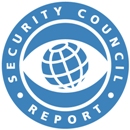
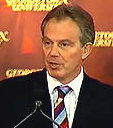
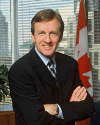 Ambassador Allan Rock
Ambassador Allan Rock 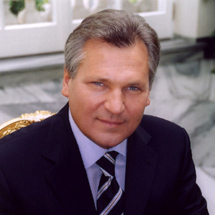 Kwasniewski, who led Poland during the country’s support of the U.S. war in Iraq,
Kwasniewski, who led Poland during the country’s support of the U.S. war in Iraq,  During a visit last month by President Vike-Freiberg to Finland to discuss economic ties with her counterpart President Tarja Halonen – herself recommended for the top post – both recognized the virtual certainty that the next UNSG would be an Asian national.
During a visit last month by President Vike-Freiberg to Finland to discuss economic ties with her counterpart President Tarja Halonen – herself recommended for the top post – both recognized the virtual certainty that the next UNSG would be an Asian national.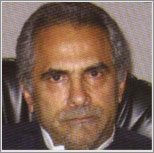
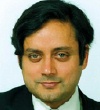 Last month, Shashi Tharoor, Under-Secretary-General for Communications and Public Information, opened the Committee on Information meeting at the UN urging reforms to
Last month, Shashi Tharoor, Under-Secretary-General for Communications and Public Information, opened the Committee on Information meeting at the UN urging reforms to 



